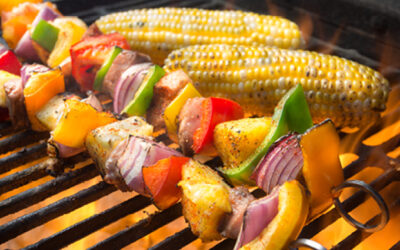Your kidneys are two fist-sized organs that sit just underneath your ribcage on either side of your spine. They work to filter out waste and keep the water, salts and minerals in balance in your blood. Your kidneys also make hormones that regulate your blood pressure and make red blood cells. When your kidneys aren’t functioning as they should, our health system is here to serve you.
Signs of Unhealthy Kidneys
If your kidneys are unhealthy, you may not notice at first. But since kidney disease is one of the leading causes of death in the U.S., it’s important to know the signs.
- Blood in your urine. When kidneys are damaged, blood may leak into urine. This could be a sign of kidney disease, tumors, kidney stones or an infection.
- Cramping in your muscles. Electrolytes keep your muscles moving, and one of the jobs of kidneys is to keep electrolytes in balance. Muscle cramping could be a sign that your kidneys aren’t functioning properly.
- Kidneys filter out blood toxins and impurities. A buildup of this kind of waste can lead to fatigue.
- Foamy urine. Extra protein in your urine can lead to foaminess or excessive bubbles.
- Frequent urination. When kidney filters are damaged, it can make you feel like you need to urinate more often.
- Puffy eyes. The buildup of toxins in the blood can lead to puffiness in the eyes.
If you experience any of these symptoms, it’s important to see a healthcare provider, even if you have a busy schedule.
7 Healthy Kidney Habits
If you’re worried about having healthy kidneys, there are steps you can take to prevent kidney disease.
- Control your blood pressure.
- Don’t smoke.
- Eat a healthy diet.
- Exercise at least 150 minutes per week.
- Keep your blood sugar in check.
- Limit alcohol.
- Maintain a healthy weight.
Kidney Friendly Foods
Proper nutrition is vital in supporting healthy kidneys. Research shows that the Dietary Approaches to Stop Hypertension (DASH) diet reduces kidney stones and is one of the best treatments for kidney disease. Here are some DASH diet guidelines:
- Load up on fruits and vegetables. Eat four to five servings of fruits and vegetables per day.
- Limit sodium, sweets and saturated fat. Restrict sodium to 2,300 milligrams per day. If you must eat sweets, limit yourself to five servings or less per week. Avoid saturated fats as much as you can.
- Go nuts. Eat one to five servings of unsalted nuts, seeds, or legumes per week.
- Choose low-fat or fat-free dairy. The calcium in dairy is great for your bones, but the fat is bad for your heart. Stick with low-fat or fat-free options.
Before you make any changes to your diet, talk with your primary care provider to find out what’s right for you.




